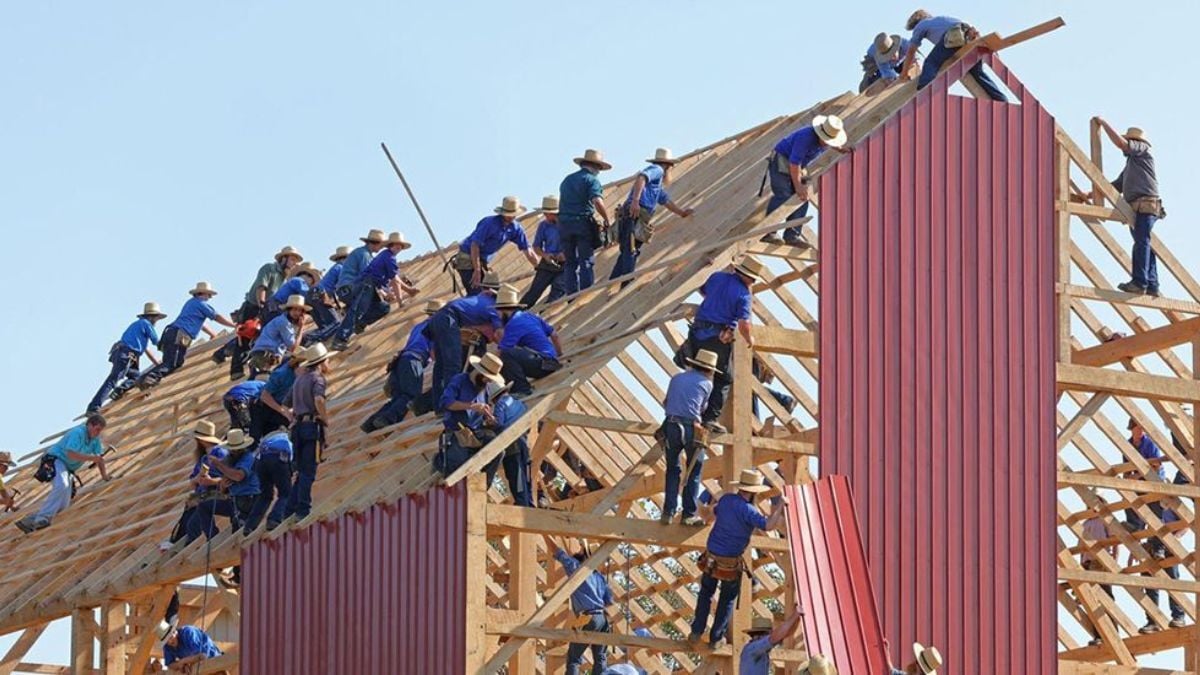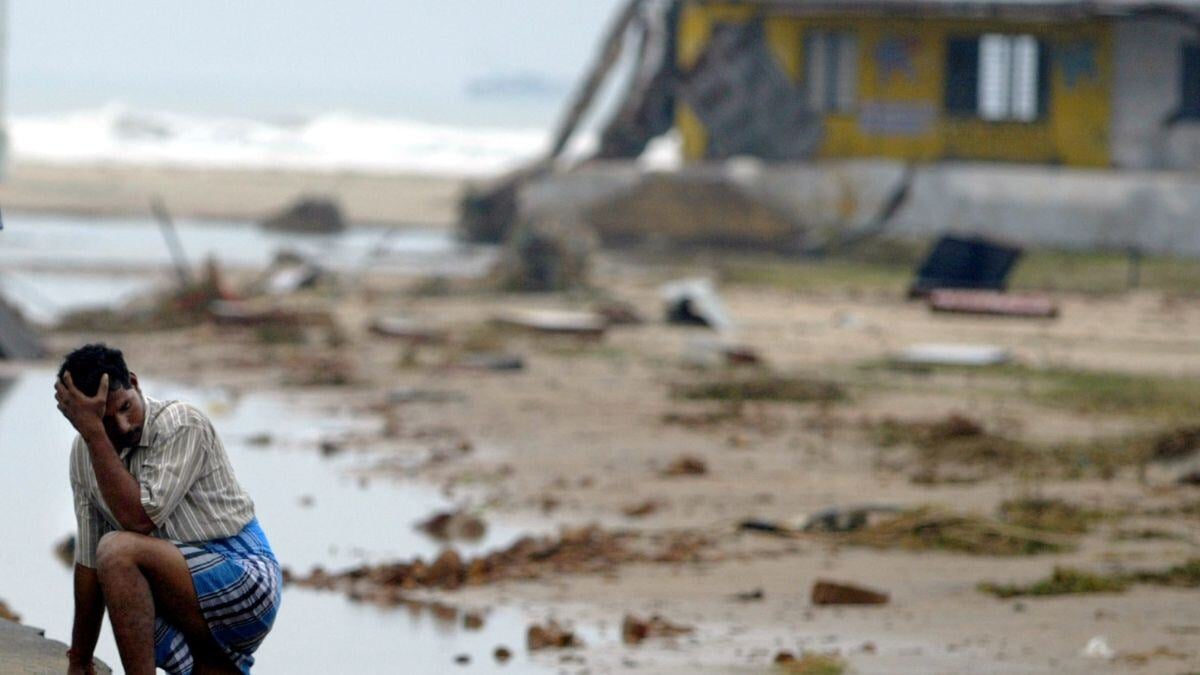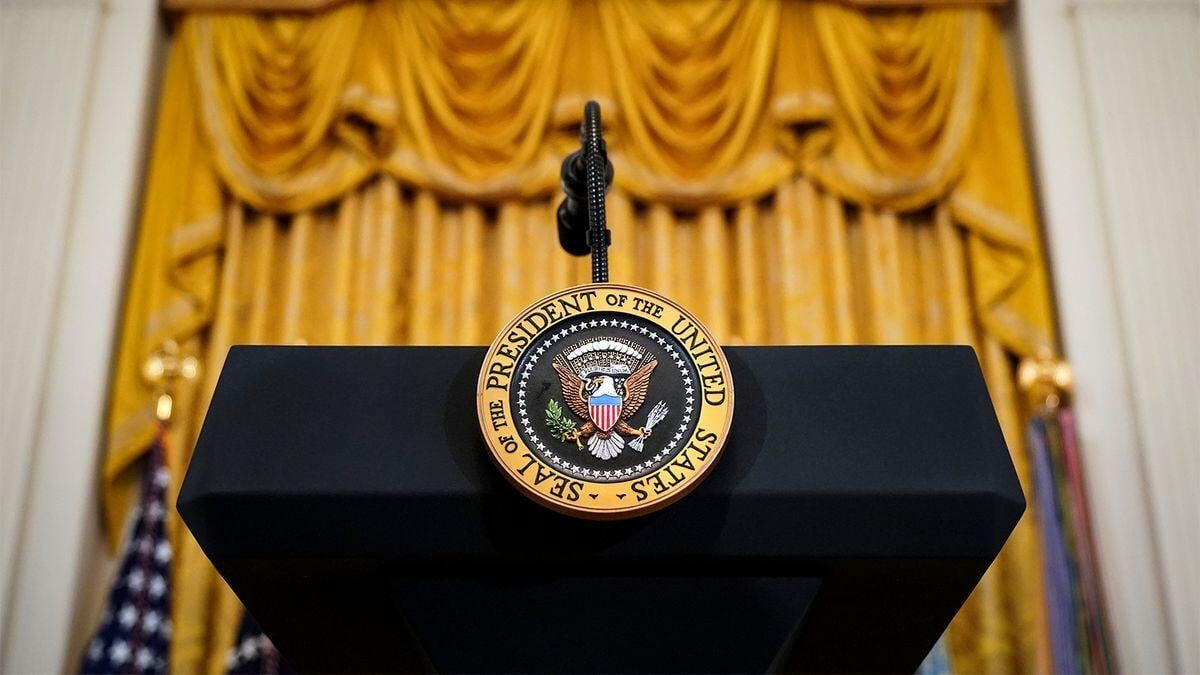Natural Disasters and the Problem of Evil and Suffering
Author: John Stonestreet and Dr. Timothy Padgett

Authors: John Stonestreet and Dr. Timothy Padgett
Last September, vast sections of Appalachia were devastated by Hurricane Helene. The category 4 storm brought apocalyptic flooding to areas of Georgia, Tennessee, South Carolina, and most destructively, North Carolina. The final cost of the destruction is over $200 billion and, more importantly, 230 lives. Some places, like Chimney Rock, NC, are almost unrecognizable still.
Happening so close to the 2024 election, and shortly followed by devastating wildfires in and around Los Angeles, the hurricane became a political football. While media coverage in California turned its focus on the incompetence of the state government, in North Carolina, the federal government was accused of withholding help or not showing up at all.
Somebody did show up, though. Over the last six months, over 2,000 volunteers from the Pennsylvania Amish community have been rebuilding homes and structures in places like Chimney Rock. Known for their ability to build a barn in a day and move a barn by hand, these faithful men and women are putting their considerable skills to work on behalf of another community. The Amish volunteers weren’t sent by the government, nor did they wait for government approval. They clearly weren’t there to curry political favor, as others were.
Their response to those in need comes from their way of looking at the world. First, the Amish believe that when someone is in need, that is a calling to help. Second, the Amish believe that a community, not a government, is best positioned to help. Obvious in this story (and so many others through the years) is that there are Amish versions of the doctrine of subsidiarity, the Roman Catholic idea that help is most effective when offered by those closest to the problem, and sphere sovereignty, the Reformed idea that not all problems are the State’s to solve.
Conservatives rightly complain about the government being in business that isn’t theirs. The best way to push the State out of those spaces is to be there first. Edmund Burke described this as creating “little platoons” of civil society, beginning with family and moving on to neighbors, communities, etc.
Of course, the Amish also believe that faith is to be practiced not merely held. That’s why their efforts stand in such stark contrast to celebrities who flood social media with tears and well-wishes at times of crisis. Some contributions are certainly worthy, but some are better dubbed “disaster tourism.” That’s to be expected in an age when, as brothers Logan and Jake Paul recently noted in a commercial, “Attention is the currency. ... You want someone to have an opinion on you. If they don’t, then that’s when you’re losing.” That’s an accurate description of the cultural moment, but a terrible strategy for disaster relief.
Rather than “practicing righteousness before others in order to be seen by them” with carefully curated images posted on social media, Christians would do better emulating the Amish, who have not posted their efforts in North Carolina to Instagram. And it’s important to note that this type of service is always available. There’s no need to wait for the government when local churches and charities, and national organizations such as Samaritan’s Purse are there with ways to give and serve and help. In their usual style, Samaritan’s Purse was among the first on the ground helping victims of Hurricane Helene. They have been rebuilding, providing campers for temporary shelters, meeting medical and financial needs, and bringing the Gospel of salvation ever since.
And there are others as well, just as there always have been throughout history. After all, Christians are known as those who run into the plague, not away from it. They usually get there first, and their work demonstrates the extraordinary power of Christ followers operating in little platoons.

Author: John Stonestreet and Dr. Timothy Padgett

Authors: John Stonestreet and Billy Hutchinson

Author: John Stonestreet and Dr. Timothy Padgett